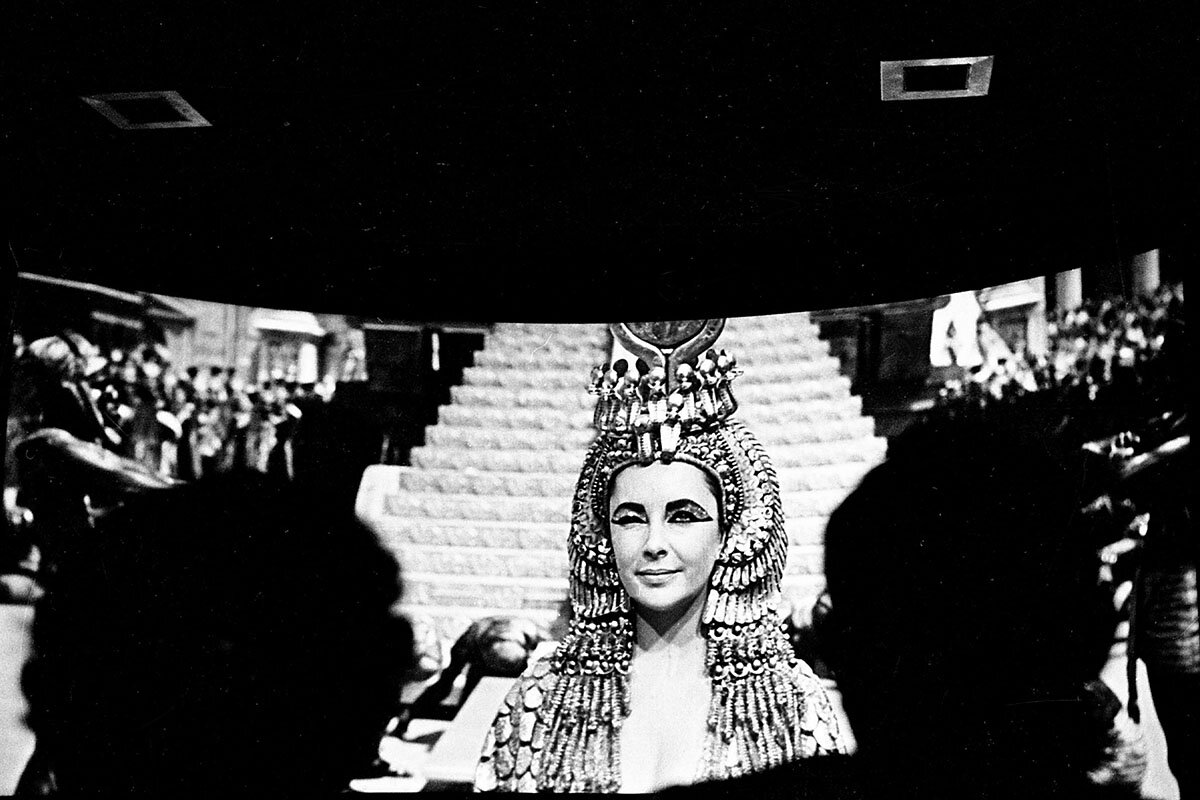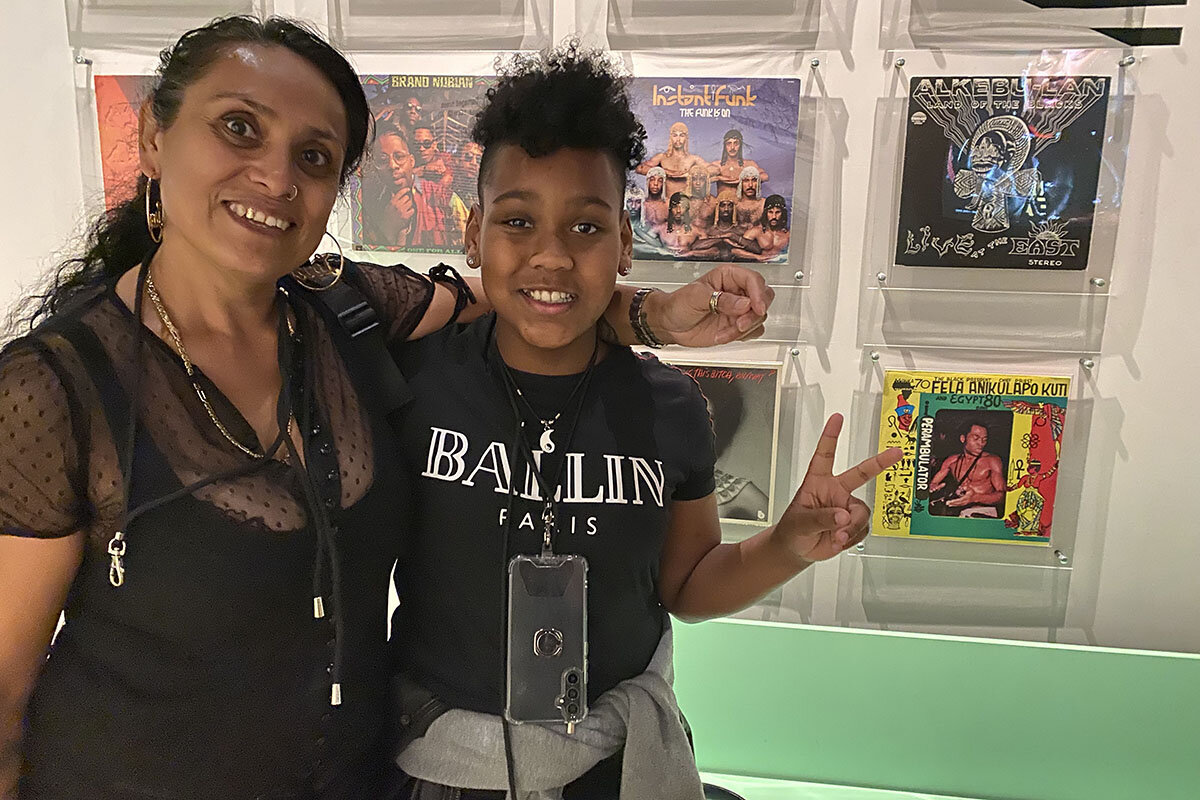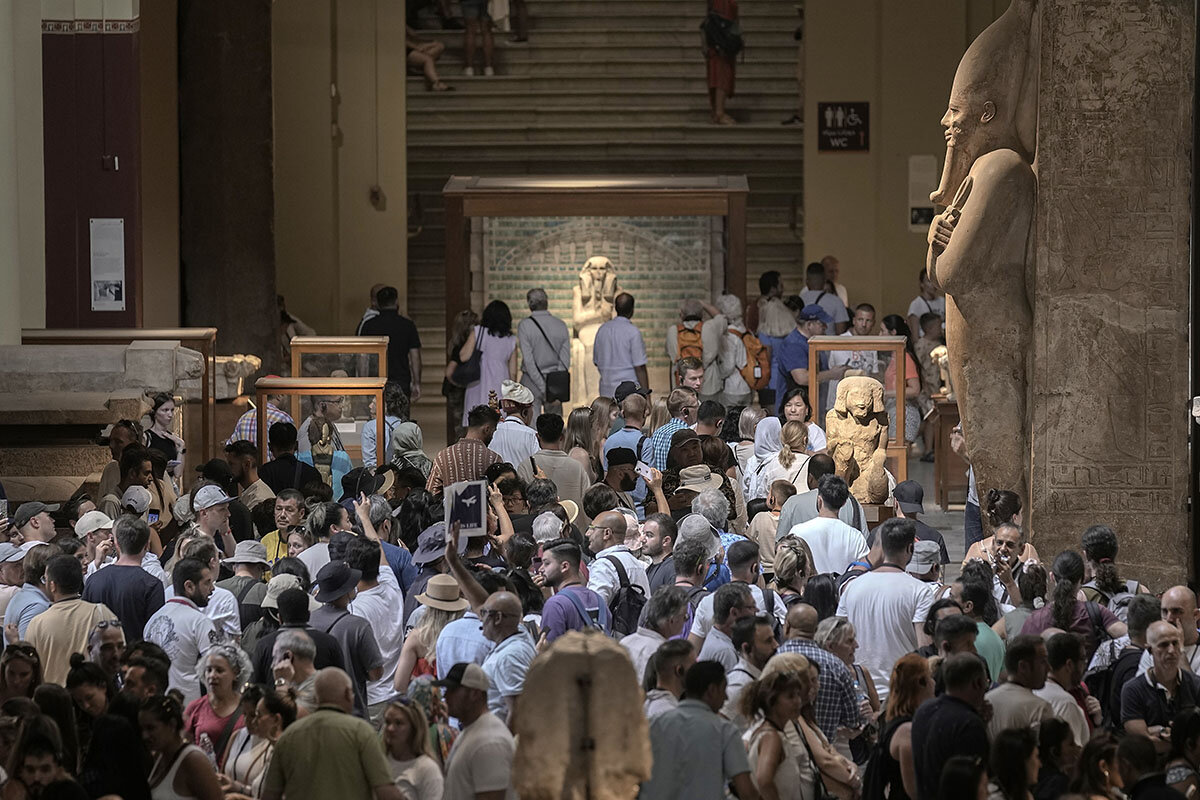How Cleopatra got caught up in a culture war
Loading...
| Leiden, Netherlands
Hollywood has long chosen people like Elizabeth Taylor to play Cleopatra. But this year, Netflix cast the Black British woman Adele James in the title role of Queen Cleopatra for its series.
A social media firestorm ensued. Egyptians, who felt that their history was being misrepresented, claimed that she was light-skinned and of Macedonian origin. Some of them launched a Change.org petition demanding that the series be canceled.
Into that simmering cauldron stepped the Dutch National Museum of Antiquities, which was intent this summer on celebrating the inspiration that scores of Black artists – from Prince and Michael Jackson to Beyoncé and Erykah Badu – have drawn from ancient Egypt.
Why We Wrote This
When it comes to ancient kingdoms and cultures, who has legitimate claim to use that history to define themselves today? And who, if anyone, are history’s gatekeepers?
That was too much for the Egyptian government, which declared that the Dutch museum was “falsifying history” and banned its archaeologists from future excavations at a UNESCO World Heritage Site in Egypt, where they have been working since the 1970s.
“The government’s reaction isn’t surprising for a number of reasons,” says Ali Hamdan, a political science professor at the University of Amsterdam. “Anti-Blackness does have a long history in Egypt. But the more important reasons are the history of imperialism and its connections to archaeology in Egypt.”
At the heart of the controversy is a debate over ancient Egypt: Who should interpret it, and how? “Who writes history, from what perspective, and according to which rules?” the museum exhibition asks visitors to ponder in one of its many text displays.
The long history of colonization and the appropriation of Egyptian artifacts provides a potentially explosive backdrop for today’s explorations of race and ethnicity. And the Egyptian government is now pushing back with its own interpretations of ancient Egypt.
“There have been centuries, millennia really, of appropriations of ancient Egyptian imagery to all kinds of ends,” says Pansee Atta, an Egyptian Canadian artist and scholar. Some have supported Egyptian political autonomy, she says, while others have removed monuments to the West.
“But ancient Egyptian artifacts have been so well preserved and so visible that they have been a real source of inspiration for all people, continuously for thousands of years,” she points out.
Culture, politics, and Egypt
In Leiden, dozens of museumgoers paused before exhibits at “Kemet: Egypt in Hip-hop, Jazz, Soul & Funk,” as the music of Prince, Erykah Badu, and Nina Simone played, accompanying various images including a statue of the American rapper Lil Nas X as King Tut, and the Afrofuturism pioneer Sun Ra’s interpretation of himself as a pharaoh.
All that was just fine for Erica van Leeuwen, who visited the exhibition out of curiosity and says anyone should be able to draw their own interpretations of history. “History is ages, ages ago; it’s ancient. The artists who identify with the old Egyptian culture, it’s how they feel and get inspired,” she says. “I mean, who am I to say you are not allowed to declare yourself part of my culture?”
Yet Egyptians are sensitive to this question of historical interpretation, says Dr. Hamdan, after 150 years in which colonial archaeologists from Europe have been “not just extracting artifacts, but telling Egyptians how they’re supposed to make sense of these things.”
And the government, led by President Abdel Fatteh al-Sisi, is making political capital out of the Netflix controversy, Dr. Hamdan suggests. As he tries to deal with a sour economy and to head off popular unrest, “he is saying he is fighting against Hollywood, defending Egypt from these external enemies. This is very much in the interests of the government – to blow the story up ... to latch onto culture war issues.”
The museum, which declined an interview request, stood by its Kemet exhibition, insisting that both “Eurocentric and Afrocentric perspectives” are important, as are contemporary Egyptian perspectives on ancient Egypt. Social media commentary has taken the content of the exhibition out of context, the museum said in a statement.
Interpreting history
Modern academics argue that race is a social construct. Indeed, the concept of race was developed millennia after the fall of ancient Egypt. And interpretations of race have always been subject to political and societal forces.
“It is a model for explaining differences, and of course it is already loaded with who is better and who is superior, who is inferior,” says Ulrike Dubiel, an Egyptologist affiliated with the Freie Universität in Berlin. “It goes horribly destructive, of course,” in the hands of the Nazis, she adds.
Egyptology itself has changed with the times; the Germans during the Third Reich depicted Egypt as more European than African, says Ms. Dubiel. “It was a matter of the Egyptologists having to justify why their discipline was relevant,” and, under the Nazis, that meant “whitewashing it.”
The Dutch museum’s approach was not “appropriation” in the way that Americans would define it, says Dr. Hamdan, who is Arab American. “In fact, it seems like they are just trying to expose people to relationships they didn’t realize existed.”
Perhaps the lesson is that the interpretation and reinterpretation of history should be expected, suggests Ms. Dubiel.
“We have more and more facts, and if you are a good scientist, you indeed look at all the facts that are available, and then you have to readjust your interpretation of those facts,” she says.
“And the sooner that we can acknowledge that we are always going to be interpreting history subjectively, the better,” says Dr. Atta, the Egyptian Canadian artist. “I think the idea that anyone is going to have access to a pure and unmediated vision of the past is an illusion.”
Museumgoers in Amsterdam seemed to be intrigued by what they learned. Priscilla Matkussa had never thought about Cleopatra’s race, but she came away realizing that many cultures have drawn inspiration from ancient Egypt.
Ms. Matkussa hails from Indonesia; her husband is Dutch; their 11-year-old boy Kymani is named after Jamaican reggae star Bob Marley’s son. With Frank Ocean playing in the background, the boy explains his approach to race: “Everybody is the same,” he says. “I see both colors” in Cleopatra. “We should all be happy whatever color anything is.”











